Five things you need to know about the coronavirus pandemic this Friday evening.
Here are five things you need to know about the coronavirus pandemic this Friday evening. We’ll have another update for you in the morning.
1. PM faces deadline to give answers over party attendance
Prime Minister Boris Johnson has to submit his responses to a police questionnaire about his involvement in parties at Downing Street during lockdown restrictions. Lawyers have been advising the prime minister, who was one of more than 50 people being questioned by police. The BBC understands Downing Street is not planning to confirm when Mr Johnson has sent in his answers. Officers are investigating 12 events on eight dates, involving several government departments, after an internal inquiry by civil servant Sue Gray passed on evidence to the Metropolitan Police. Mr Johnson has previously said he did not believe he had broken any lockdown rules, but apologised “for the things we simply didn’t get right”.
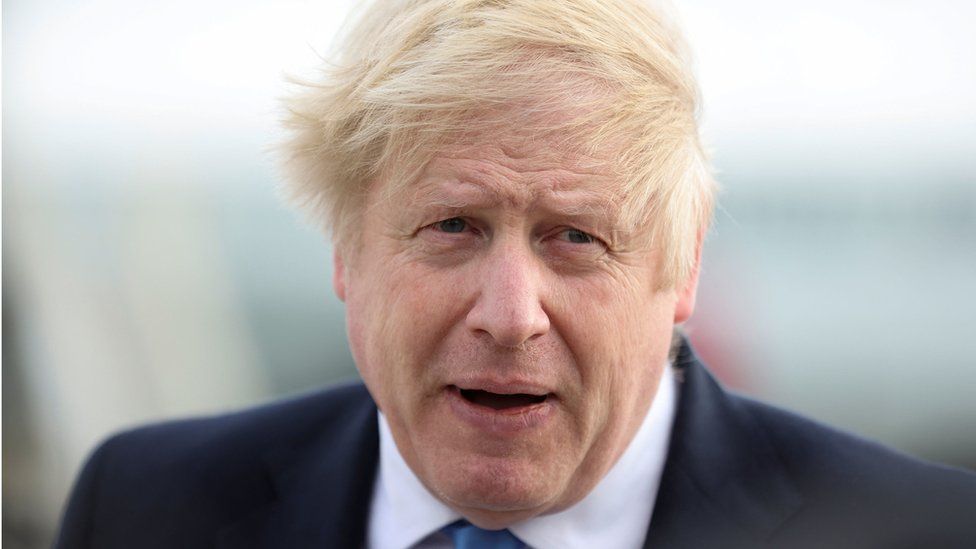
Image source, PA Media

2. US actor sues Disney over mandatory vaccination
US actor Rockmond Dunbar, who appeared in emergency services drama 9-1-1, is suing Disney-owned TV company 20th Television over its requirement for performers to be vaccinated. Dunbar, who played Michael in five seasons of the show, said he was fired after he claimed an exemption based on his beliefs as a member of the Church of Universal Wisdom, as well as an undisclosed disability. The actor’s legal papers say his church prohibits medical intervention that introduces disease into the body and followers refuse to pierce the skin for medical treatment. Dunbar says he faced racism discrimination, as other cast and crew members – who did not cite religious reasons and were not black – were granted exemptions. 20th Television said it complied with its legal obligations and denied making decisions based on race.
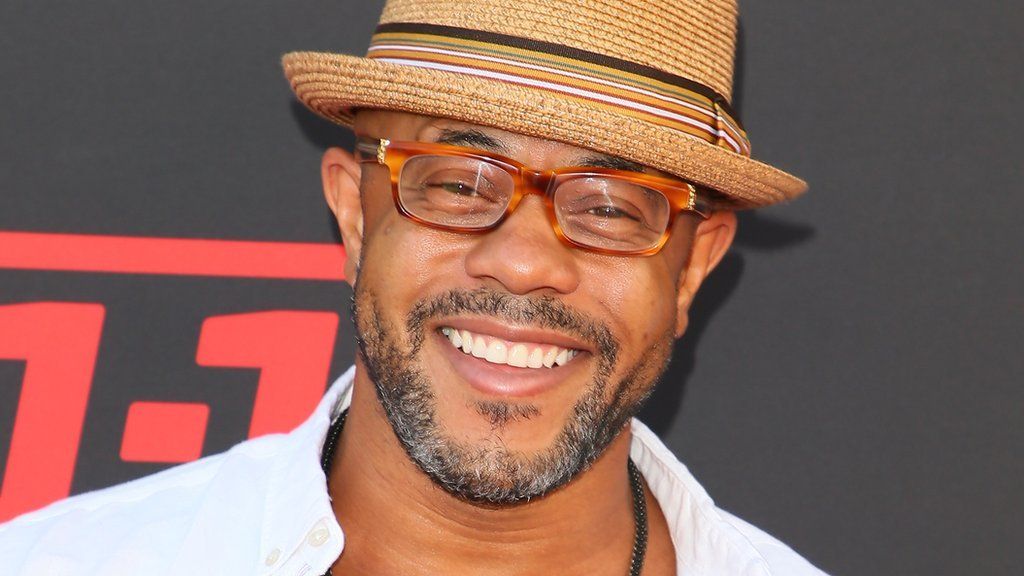
Image source, Getty Images

3. Judge rejects discrimination claim over £20 benefits boost
A High Court judge has rejected a claim that people who missed out on the £20 universal credit uplift in the pandemic were unlawfully discriminated against. Four claimants on so-called “legacy benefits” such as jobseekers’ allowance, income support and employment support allowance were challenging the decision to exclude them from the extra payments, made weekly from March 2020 to October 2021. There were about two million other people in the same position and lawyers for the claimants said they faced the same financial pressures as people on universal credit. But Mr Justice Swift said the government was entitled to direct its help towards people who had faced a sudden loss of income, as the number of universal credit claimants doubled to 5.3 million at the start of the pandemic.
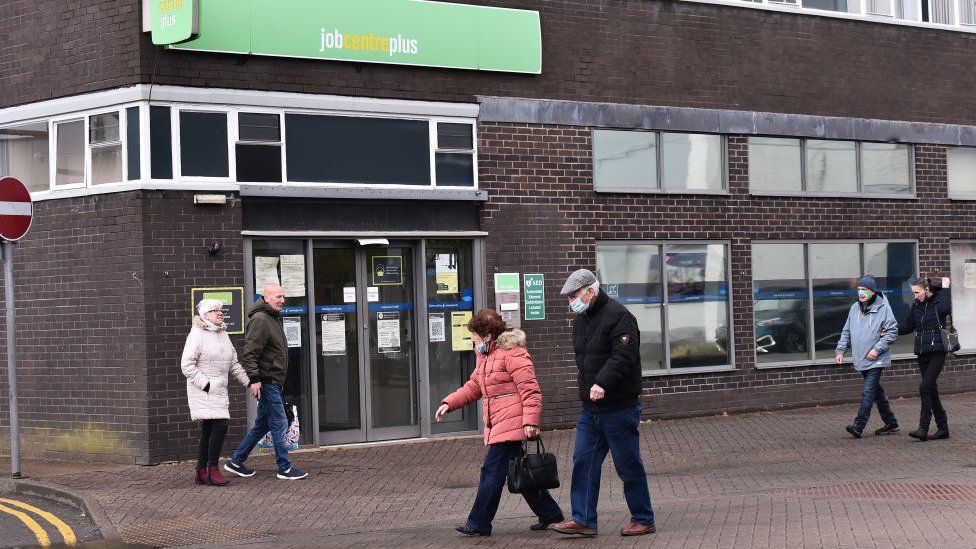
Image source, Getty Images

4. Police begin to arrest Ottawa vaccine protest truckers
Three weeks after anti-vaccine protestors gathered in Canada’s capital, police have begun making arrests, with officers saying some of the demonstrators surrendered. The remaining protestors were in defiance of an order to leave the site in Ottawa, after the federal government invoked the Emergencies Act for the first time. On Thursday, police set up almost 100 checkpoints around the protest site to prevent more protesters arriving and detained two leaders of the trucker convoy. Ottawa’s police chief resigned earlier this week over his handling of the demonstration, which saw hundreds of trucks paralysing the centre of the city to oppose mandatory vaccination for truckers travelling between Canada and the US.
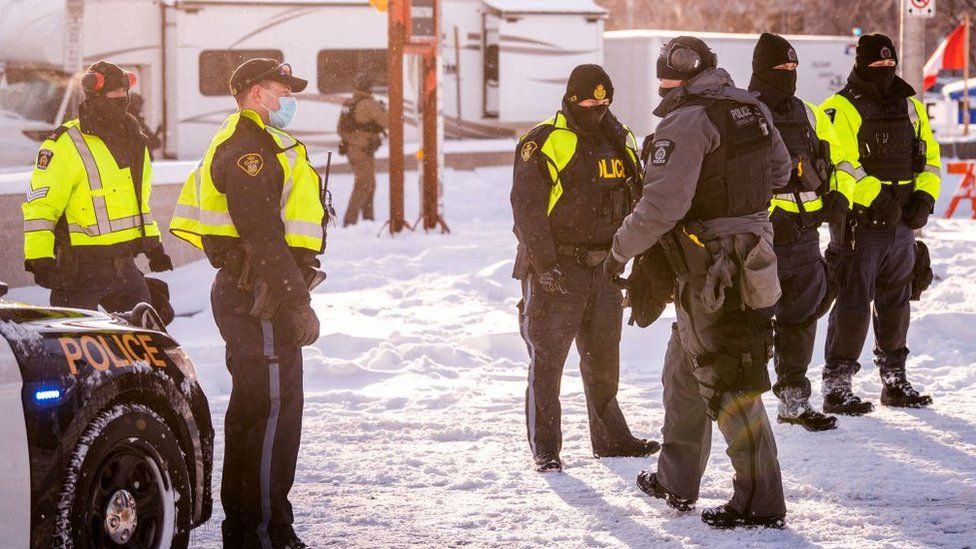
Image source, Getty Images

5. Six African countries to get mRNA vaccine tech
Egypt, Kenya, Nigeria, Senegal, South Africa and Tunisia will be given the mRNA technology used in the most effective Covid vaccines to set up their own production centres, the World Health Organization has announced. The move, which comes after South African scientists reverse-engineered the Moderna vaccine, is intended to help the continent be self-reliant in its fight against the pandemic. Senegal’s President Macky Sall said the aim was for 60% of vaccines used in Africa to be made on the continent. In the future, it is hoped the new African vaccine hub might produce vaccines for diseases such as malaria, tuberculosis and HIV.
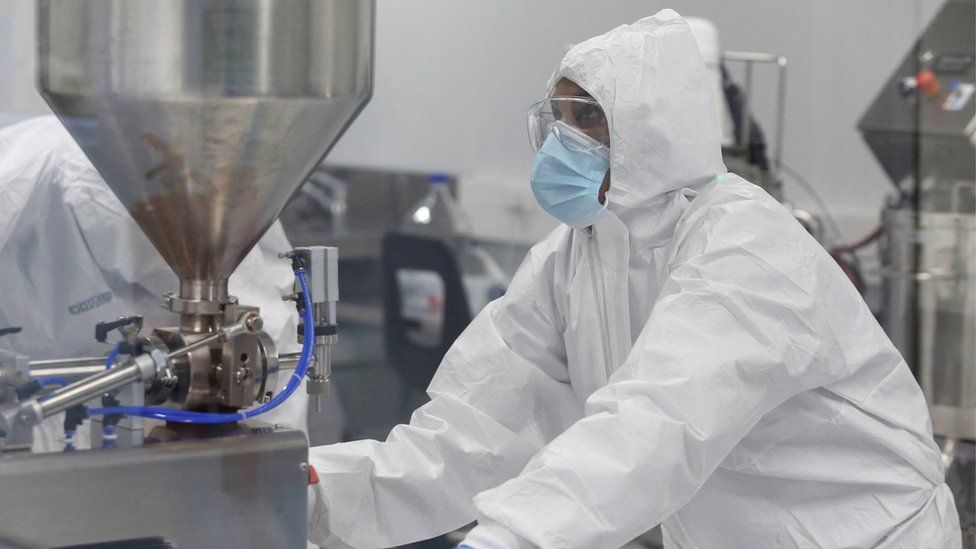
Image source, Reuters

And there’s more…
A new drug to treat Covid is being used in the NHS for the first time. Find out about the difference it could make to fighting the virus here.
You can find more information, advice and guides on our coronavirus page.


Image source, BBC
What questions do you have about coronavirus?
In some cases, your question will be published, displaying your name, age and location as you provide it, unless you state otherwise. Your contact details will never be published. Please ensure you have read our terms & conditions and privacy policy.
Use this form to ask your question:
If you are reading this page and can’t see the form you will need to visit the mobile version of the BBC website to submit your question or send them via email to YourQuestions@bbc.co.uk. Please include your name, age and location with any question you send in.

- THOMAS SHELBY RETURNS: See what’s in store for the final instalment of Peaky Blinders
- THE LAST STONE: When Great Britain’s women’s curling team captivated the nation
